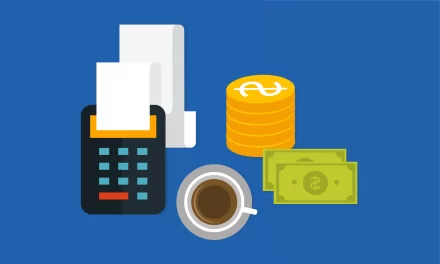This series was inspired by the 1/20 million dollar question which we asked the members of our WhatsApp groups. The question was “Would you rather be given US$1 Million dollars now, or US$20 million dollars 10 years from now.” The purpose of these lessons is not to determine what the best decision is, for that is neither here nor there, since it is just a hypothetical situation, but there are lessons which we can derive from the 1/20 million dollar question.
Delayed Gratification
Delayed gratification is the ability to resist the temptation for an immediate reward (usually smaller) and wait for a later reward (usually larger and more enduring). Many of us would choose $1 million today over the future amount (even if it was increased to $100 million), not because we can invest the money and beat the amount offered 10 years from now, but because we are not able to delay the gratification. We want to enjoy now.
For us to be successful entrepreneurs, we should be able to delay gratification. As one person noted, “Entrepreneurship is living a few years of your life like most people won’t, so that you can spend the rest of your life like most people can’t.”
I have seen cases of people who start a business, which becomes profitable, but instead of reinvesting the money in the business so that it grows, they spend the profits on flashy things of life, nice cars, expensive clothes and useless personal items e.t.c. They want to enjoy their success now, they want everyone to see that they are making money, and as a result their business does not grow. This is foolish. It will be much wiser to reinvest the money into your business, and the time will come when you are able to achieve a sustainable growth rate for your business, coupled with an expensive lifestyle which you want. Do not pay yourself large salaries when your business is still small. Delay the gratification till the right time.

Are you able to delay gratification?
Some reach a point when they have to make a decision between staying on their job, and leaving their job to run their business full time. They are aware that if they leave their job and concentrate on their business, they are much likely to have a big business and financial independence few years down the line. They are also aware that in the early stages of the business, it will require working long hours, sometimes with low salaries as the profits will be low, and with no guarantee for success. If it’s farming, it will require them to stay at their farm, away from the exciting city life, and it will take time before the business becomes profitable. Faced with such a situation, most people will not be able to forgo the gratification of the monthly salary, and would rather remain in the rat race.
Remember the seven cures for an empty bank account, they require you to save money so that you can get enough capital to invest somewhere/ start a business. This is possible if we are able to delay gratification, cutting expenses (Remember expenses will always grow to match our income unless we protest otherwise!) so that we can save money to start our business. Do not be short sighted! Being able to delay gratification is a key to success. Remember, GREAT THINGS COME TO THOSE WHO WAIT!
To all parents out there, teach your children to delay gratification, and google what is known as the Stanford Marshmallow Experiment.
What do you think of this lesson? Are you able to delay gratification in your life? Are you reinvesting profits for the growth of your business? Are you saving money to start your business?
Time Value of Money
In lesson 1 we discussed about delayed gratification. Some people missed the purpose of these lessons. We are not trying to answer the 1/20 million question. We are just deriving lessons from the question. The last lesson was not about taking the 20 million over the 1 million. It was about being able to delay gratification for greater future benefits, being able to save so that we can raise capital to start our business and reinvesting profits into our businesses so that they grow. The 1/20 question is an unrealistic situation which will never happen to anyone of us, but beauty of it is that we can derive lessons from the question.
Time Value of Money
Some people would chose 1 million today over 20 million after 10 years, not because they can’t delay the gratification, but because they understand the concept of Time value of money. In simple terms it means that the value of money you have now is greater than the value of the same amount of the money at a future date. $100 today is worth more than $100 one year from now. Why? It is because you can invest the $100 today, and earn a return on that investment. Thus a year from now, the $100 you invested will have multiplied to maybe $200. That is one of the reasons why banks charge an interest if you take a loan from them. They will be charging you for the time value of money. Another reason is that $100 today is a sure thing, you have it certainly. On the other hand, there is risk of default for a $100 a year from now, as the person may not pay up, such as that friend of yours who borrowed you money long back but has not paid it back yet!
Do we really apply the concept of time value of money in our businesses? When we offer credit to our customers, do we put the concept of time value into consideration? Evidence at hand shows that the society is generally aware of the concept of time value of money. Thus why if you buy broiler chicken with cash you pay $6, but on credit (paying month-end) you pay $7. It is the concept of time value of money at play. It also means that we have to be very careful when offering credit to customers, as some may take longer than expected to pay. You may end up taking 6 months to collect the money from the customer, thus it will have a lower time value, plus you would have wasted time chasing after the money. Thus the prices you charge for those who take your goods on credit should reflect the time value of money. Sometimes it is also better to sell our goods at a lower cash price, than a higher credit price.
We should also consider the time value of money when we take loans for our businesses. You should be able to generate a greater return from the money than the interest charged by the lender. It does not make business sense to take an expensive loan of 30% interest per month from the micro-financial institutions when your business cannot generate such a return. It makes sense to get a loan from CABS at 18% per annum, and you invest the money into a business that will generate a return greater than the rate of interest.
This concept also shows that our money will be losing value if we just let it lie idle in the bank. You have to invest your money so that it multiplies, don’t let it lie idle. If you keep a $1500 in your bank today, a year from now it will be at most $1500. If you invest it, start a business, it might have increased to $2000. Of course there are risks involved when investing, but we dealt with the issue in our last series, “The seven cures to an empty bank account”.
You should also be careful when you take stuff on credit and then pay via monthly instalments. The monthly instalments would have been adjusted for time value money, and you will end up paying more than the cash price. Do your calculations well. Most times it is usually better to pay cash and avoid paying for the time value of money.
What do you think of this lesson? Do you apply the concept of time value of money in your business and in your daily life?
Personal Financial Strategy
In part one we discussed about delaying gratification, and part 2 we talked about the time value of money. These lessons are interlinked, just like the seven cures, though at first glance it may seem like they are opposing. The principles taught in those lessons should not be used in isolation, but you should apply them collectively as you come up with a financial strategy for your life. This lesson is meant for entrepreneurs and those who want to achieve financial independence.
The 1/20 million dollar question brightens up our minds. All of a sudden we begin to think of what we will do if we are given a million dollars today. How we will use it. Many will think of buying houses, shares, starting a business, luxury cars e.t.c. That is what we will discuss in this lesson, financial strategy from a personal finance perspective. The reality is we do not need a million dollars in order for us to come up with a financial strategy; you need a strategy of how to handle the little money you are getting.
We all have expenses. The principle of delayed gratification encourages us to cut out the unnecessary expenses so that we can reap a future greater reward. You should limit your expenses to a certain proportion of your income, e.g. 60% of what you get. There is no universal figure of the right proportion of income for expenses, but try to minimize them and stick to the budget. We dealt with the issue in our last series, “The seven cures to an empty bank account”. In part 2, time value of money, we said money should not just lie idle in the bank. Does that mean that we should take all the money in our banks and invest it? No. We need to have savings.
Let’s say I am getting $500 a month, and I want to start a peanut butter making business. I estimate that I need $1200 capital to start the business. I plan to save $100 every month, for a year, to get the required capital (Yes, if you don’t have enough capital, have the patience of saving even for a year to start a business). I will keep the money in my bank, even though the time value principle suggests that the money should not lie idle. I am saving towards a goal, looking at the bigger picture. After 12 months, I will use the $1200 to start my business, in accordance with the principle of time value of money. Thus I have used both principles, delayed gratification (to save the money), and time value principle (to launch my business). So we are saying some proportion of the money you get should always be used towards investing/starting a business/growing your business, and sometimes it is necessary to first save the money for some time so that it is enough to fund your investment needs.
You also need what is known as a war chest or emergency fund. This is money you should always have for unforeseen situations. Sickness & death may befall your family. You may lose your job on short notice. You maybe sued and you will need money for a lawyer or even bail. Natural disasters can damage your property. Your car tyre might burst. These are all situations which are unpredictable, and which require money. Always have a war chest, in the bank, which you don’t use except if one of the unforeseen circumstances befalls. You should also have insurance packages e.g. medical aid, funeral assurace policies e.t.c. to help you when such things occur.
Sometimes you will need to buy assets, or build a house. You may have to save towards your own or your children’s education. You will have to open a savings account, to save money towards that. The savings account should be different from your transactional account. You should not take money out of your savings account except for the intended purpose.
Investing your money is risky. You may lose it. However, you can’t get a return without taking risk. Some people are risk averse to the extent that they are not willing to invest their money. They want a perfect investment opportunity where the probability of losing money is zero. They will always find excuses of why they can’t start that business. Some have numerous business ideas, but they will never act! Too much theory! ACTION 0%! They would rather keep cash in the bank. It is ok, but keeping cash in the bank will not make you wealthy. This lesson is for those who want to be wealthy. The money has to multiply. Put it to work please. Some will hide their extreme risk averseness by buying “assets”. It is good to buy assets, but real assets bring money into the pocket. You will hear them saying “ I don’t have a business hangu but I have stands in Westgate, Norton, Gweru and Kadoma.” If you don’t want to start a business then sell the other 3 stands, build a house, and rent it out. It now becomes a real asset as every month you will be getting cash. Know that you are very risk averse if you have a residential stand in Bluffhill worth $60 000 yet living in a rented house, and the stand will likely lie idle for the next 5 years since you do not have enough money to build the house, and you are not running any business, but just depending on your salary. Some will say “I am making progress because I am buying assets, I now have 2 cars which I use to go to work.” Yet the cars are not bringing you any income, they are actually increasing your expenses (fuel, service, etc.), and you are not running any business!
What do you think of this lesson? Do you have a savings account? Do you have a war chest? Are you afraid of investing your money but piling up pseudo “assets” which do not bring you money?
The Goal
Why are we in business? What is the goal? Is it developing our country, feeling fulfilled, doing something we love, serving a need in the community, creating employment, helping the needy? Why are you in business?
The 1/20 million dollar question reveals that money is the goal. Our minds get filled with excitement from mere thoughts of what we could do with a million dollars. It’s not just money, but the goal is to be wealthy/financially independent. That’s what every entrepreneur strives to achieve. Money can’t buy happiness, the same way poverty can’t buy happiness, but money will give you freedom. Since there are many definitions for wealth, let me clarify what I mean by ‘being wealthy’. I would like to define ‘being wealthy’ as the ABILITY to live for a long time without doing any kind of work but living the lifestyle you want and covering all your expense (you & your household). You will no longer be working for money but money will be working for you. You will be receiving money without doing any work. This is the true definition of financial independence. The longer you can live in that state, the wealthier you are. How is this possible? If Mark Zuckerberg decides to retire today, he can live the rest of his life the way he wants, without ever working again, because he has businesses & investments which constantly bring money into his pocket, he can also sell shares if need be to fund his lifestyle. So he is wealthy.
If you were to stop working today, would you be able to live the lifestyle you want, covering all your expenses for the rest of your life? If the answer is no, then you are not yet there. Your business should be able to operate independently of you; it should be able to generate enough revenue to hire people who run the business on your behalf. The owner of Chicken Slice doesn’t have to be involved in the business, because it can operate independently of him. It should be a choice to be part of your business. This is the true definition of being wealth & financial independent, which is the goal.
If I have $20 million dollars in my account and no business I am operating, am I wealthy? If the $20 million can sustain me for all my life, living the life I want without having to work again, then I am wealthy. If I am an executive in a big company, earning $20 000/ month, am I wealthy? If I am to lose the job immediately, but still be able to maintain my lifestyle without working again, then I am wealthy. However, if I depend on my job to cover my expenses, then I am not wealthy. Does it mean that I should have millions of dollars in order to achieve the goal of being wealthy? It is not about the amount of money, but the time you can live the life you are content with, without ever working. If I am content with a simple lifestyle, and have a business which can operate independently of me, for a life time, generating $1 000 monthly profits ( or houses which provide monthly rentals! Remember real assets vs pseudo assets!), which is enough to cover all my expenses, then I am wealthy even though I don’t have millions of dollars.
Does that mean that if you are wealthy you should not work even in your business? No, but working becomes a choice. Whether you work or you don’t, you will still get enough income to live the life you want. This is the freedom which money can buy. You don’t see the difference between a Monday and a Saturday. You can spend a week in the Vumba Mountains but that will not affect your income. You can see poor street kids in Harare & instead of saying “Shame”, you can transform their lives forever. You can put smiles in many families because the breadwinners of those families are employed by your company. You can drive the car you want and go on holiday anytime you want. You can drill boreholes in your village to provide them with clean water, send orphans to school and or empower the unemployed youths in your community. Money gives you freedom to do what you want.
The saddening reality is that many of us will never reach this state. The biggest excuses are insufficient capital & unemployment. We believe that without ‘enough’ capital we can’t achieve anything. The figure of ‘enough’ capital varies. If you ask an unemployed person he/she will tell you that they just need $1500 capital and they will reach the stars. If you ask the one earning $1500/month he/she will tell you that $1500 is not enough to start anything, but they need $20 000 capital to reach the stars. I call this the capital fallacy. ‘Enough’ capital is not a necessary or sufficient condition to acquire wealth. Yes, capital will make it easier, but its absence will not make it impossible. Some people started by selling freezits with little capital, selling airtime, doing manual, freelance jobs and grew their business overtime. Lack of money or a bad economy can’t stop a determined person from making money. It will take much time yes, but it can be done.
The problem is that once we believe ‘No enough capital = no business’ our minds will completely shut down and we end up missing many opportunities, consequently not starting anything because we don’t want to get out of the comfort zone. We do not want to be seen selling mineral water at bus stations because we think it is a shameful thing to do. We do not want to learn how to repair TV’s & Radios or carpentry, weaving, sewing, painting, building etc. since we have “university degrees”. Take a step of faith and start something, be in the field and your eyes will open, you will see many other opportunities you never thought of. You have to start somewhere. The problem is we want to be spoon fed and to be told that if you do ABC you will get so much money without too much effort & risk.
The internet has also opened opportunities to make money with little capital e.g. by learning a programming language you can come up with your own website which will give you money. There are also things like affiliate marketing, offering freelance services on freelance websites e.g.odesk.com, programming apps & designing websites for clients (there are many Zimbabwean companies without websites, you can learn to program for free on the internet), blogging and ecommerce. One can come up with their own unique idea like ‘Facebook’ which will give them money. Is this an easy way to make money? No, but it can be done.
You think you can’t be wealthy if you have no job, no enough capital, no ‘political connections’, no rich family & friends, no better paying job etcetera? You think you can’t make money if the economy of Zimbabwe is bad like it is? You think the definition of ‘financial independence/wealthy’ used in this article is only for the Europeans & Americans? You think this is not practical? It’s ok, continue thinking like that!
There are other reasons why many will never reach the ‘goal’ even though they may be running businesses but that is for another day & may be another series!
What do you think of this lesson & the whole 120 million dollar series? Have you achieved the goal yet? Do you think it’s achievable for Africans like us? What are the major reasons why many fail to achieve the ‘goal’?
Thank you, this marks the end of the One Twenty Million dollar series. Have a fruitful 2016, and may it bring you closer to the goal!
Check out our collection of business plans. Like us on Facebook, follow us on Twitter, and subscribe to receive notifications of new posts in your email.
A note from StartupBiz Zimbabwe: Everyday we send business updates via Whatsapp. Click the link to join: https://chat.whatsapp.com/DPa61WKvMHN5PGVJERxd9T or send the word join via Whatsapp to +263778798072 (Whatsapp us by clicking the link https://wa.me/263778798072). Sign up to our Whatsapp groups, and join other entrepreneurs from all over Zimbabwe.








